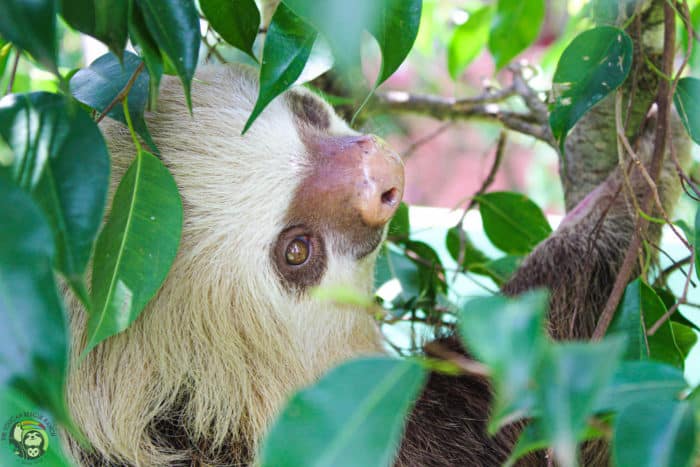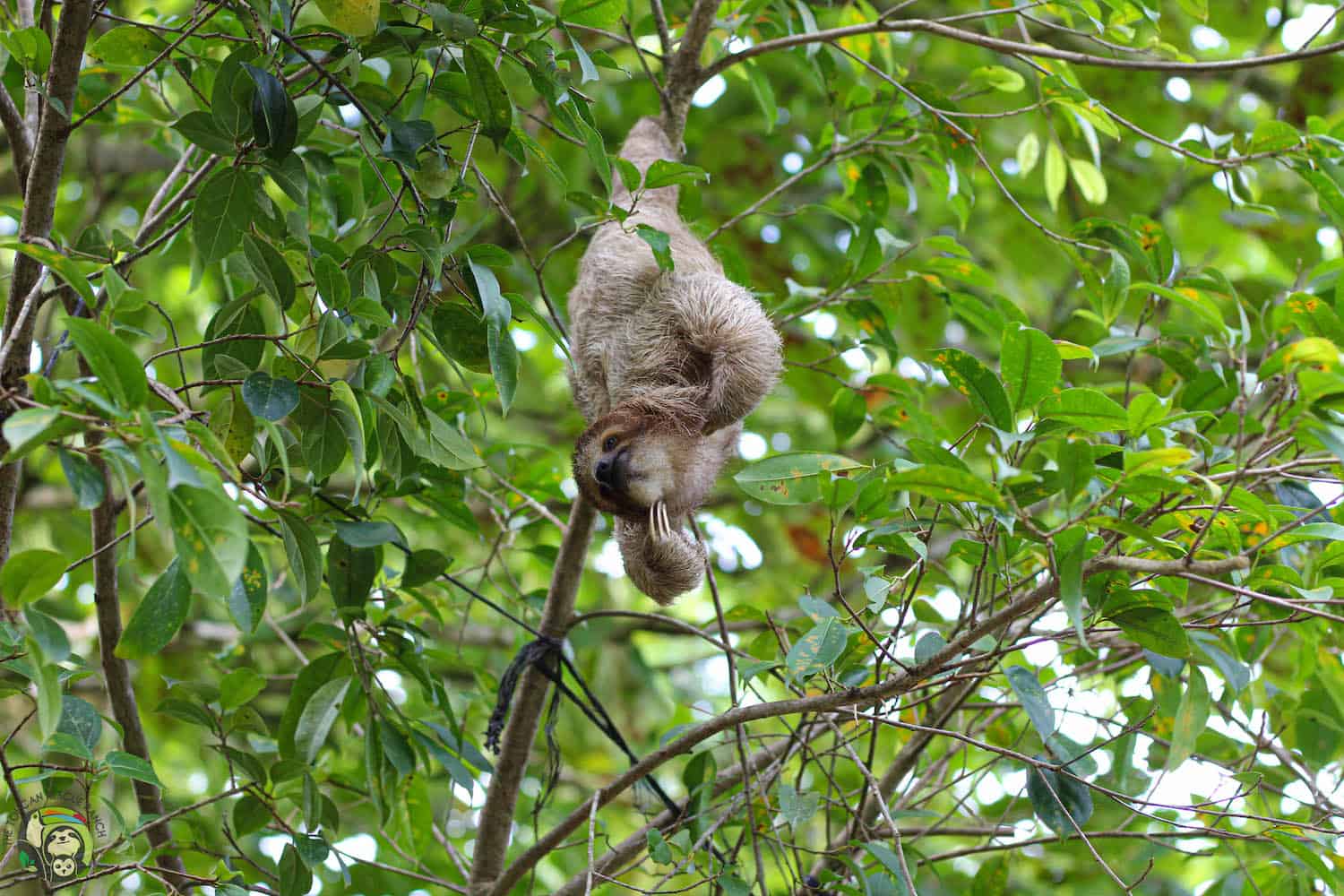With all of the craziness that’s been happening recently, we’re all adjusting to a whole new lifestyle: practicing social distancing. What is social distancing? This is a completely new term for us. It’s defined as staying six feet apart from each other and generally avoiding contact with others. How does one do that? No hanging out with friends at a cafe.
No birthday parties. How can we possibly remain isolated for long periods of time without going crazy? Who can we turn to for guidance? Who could possibly help us navigate our way through this new unexplored territory? I believe I have the answer: sloths. Yes, you read it right. Sloths.
These enigmatic creatures are masters of social distancing. Think about it. Did you ever see a sloth hanging out with other sloths in public places? Crawling after rubber balls, sniffing each others’ rear ends? No way! When you’ve gone hiking in the rain forest, have you ever had a sloth come down to greet you and lick your face? Of course not! How many of us can even spot a sloth up in the tree canopy?

But why would an animal choose to be solitary when we’ve always heard that there’s safety in numbers? Well, just as we are isolating ourselves from this new virus, we are learning that isolation is a good strategy under certain circumstances. The problem is that we’re social creatures who have been forced into a solitary lifestyle for an unknown amount of time. Like it or not, here we are. Maybe we can pick up a few pointers from these shy animals to make our confinement less difficult. After all, sloths have been isolating themselves for millions of years to avoid potential danger, and it works well for them.
What possible lessons can we learn from these mysterious shaggy creatures? Do they hold the key to happiness in solitary times or, at least, acceptance of our new circumstances? Let’s review some of their biology and behaviors to see if we find some guidelines to follow.
A healthy diet
Sloths are very picky and don’t eat junk food. Flowers would be the closest they come to treats. Eating lots of leaves and, in the case of some sloths, fruit, eggs, and bugs, is important for good gut health. I’m not suggesting that you eat bugs, although they say that they are the protein source of the future, but a healthy diet of fruit and veggies is a good idea, especially during periods of stress. So, chalk one up for sloths. Oh, and don’t forget to chew slowly.
Good hygiene
Sloths have algae and bugs that live in their fur, yet surprisingly don’t have a strong ‘sloth’ odor — and babies actually smell a bit like graham crackers. Not being very stinky makes sense if you don’t want to attract predators. Our ‘predator,’ if you will, is a microscopic virus that doesn’t care if we have an odor or not, but our poor co-sequestered loved ones do, so let’s not be tempted to let our personal hygiene go by the wayside. Just remember, we don’t smell like graham crackers. And, wash your hands!
Now we get into the more interesting adaptations that allow sloths to spend their days in happy isolation, though these don’t really work for us. Sloths have huge bellies that allow them to stay high up in the trees for days at a time, alternating between sleeping and eating, sleeping and eating. Every week or so, when its belly can hold no more food, the sloth climbs down to the forest floor to go to the bathroom. With all of the crazy toilet paper hoarding happening, some frustrated shoppers may wish that they could hold off going to the bathroom for a week as well. Unfortunately, only sloths have the ability to do this. People, c’mon! You don’t need all that toilet paper!
Finally, we arrive at the most obvious lesson we can learn from sloths, and that is to … relax. While we may not have the slow metabolism of a sloth, we do need rest and relaxation. If we’re stuck at home anyway, why not use some of that extra downtime to channel our inner sloth. We don’t know when we’ll have to return to the rat race, so while we can, let’s sleep late, meditate, relax, take a nap. Whatever works. Take a deep breath in. Out. In. Out. We will get through this.
— Denise Gillen is Animal Support Volunteer with Toucan Rescue Ranch.
This article was produced by The Toucan Rescue Ranch. The Toucan Rescue Ranch specializes in helping wild animals recover so that they can be reintroduced into the wild.






